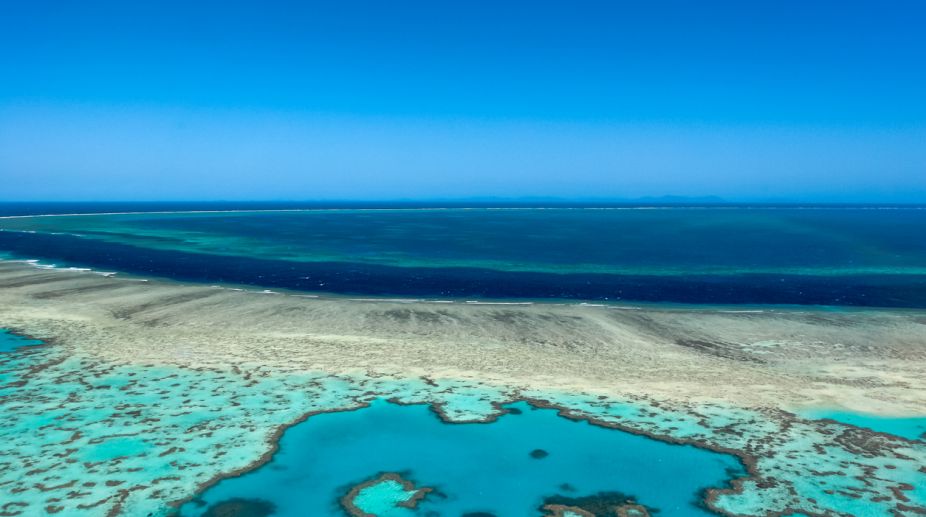About 1,500 km of Australia's Great Barrier Reef, or approximately two-thirds of the world's largest coral system, has been damaged after two consecutive years of coral bleaching, specialists announced Monday.
"The combined impact of this back-to-back bleaching stretches for 1,500 km, leaving only the southern third unscathed," said professor Terry Hughes, Director of the James Cook University's Centre for Excellence in Coral Reef Studies.
Advertisement
In 2016, the bleaching, caused by a rise in water temperatures and the El Nino effects, damaged the northern third of the Reef, situated off the northeastern coast of Australia, while now the middle third has suffered the most severe bleaching in less than a year, according to aerial surveys carried out by Hughes and a group of scientists, Efe news reported.
"This year, 2017, we are seeing mass bleaching, even without the assistance of El Nino conditions," he said, referring to the results of his study on the coral bleaching in the Great Barrier Reef, a phenomenon which has occurred before in the years 1998 and 2002.
"Bleached corals are not necessarily dead corals, but in the severe central region we anticipate high levels of coral loss," James Kerry, one of the scientists who undertook the aerial observations, said.
Kerry also explained that the bleached corals normally take about a decade to completely recover, but he later pointed out that "mass bleaching events 12 months apart offer zero prospect of recovery for reefs that were damaged in 2016."
The recent impact of tropical cyclone Debbie, which struck north-eastern Australia at the end of March, is believed to have damaged the reef for an about 100-km-wide strip along its path.
"Any cooling effects related to the cyclone are likely to be negligible in relation to the damage it caused, which unfortunately struck a section of the reef that had largely escaped the worst of the bleaching," Kerry added.
The scientists lamented that the Great Barrier Reef is now facing several events that have a negative impact on its health, especially those caused by climate change, and urged governments to cut pollutant emissions.
"As temperatures continue to rise the corals will experience more and more of these events: 1 degree Celsius of warming so far has already caused four events in the past 19 years." Kerry said.
The Great Barrier Reef, a World Heritage Site and the largest living thing on Earth, began to deteriorate in the 1990s as a result of the double impact of an increase in water temperatures and water acidity caused by higher carbon dioxide levels in the atmosphere.
The reef is home to 400 types of coral, 1,500 species of fish and 4,000 varieties of molluscs and has attracted the attention of international leaders such as former US President Barack Obama, who called for actions to protect the natural site from the effects of global warming.











